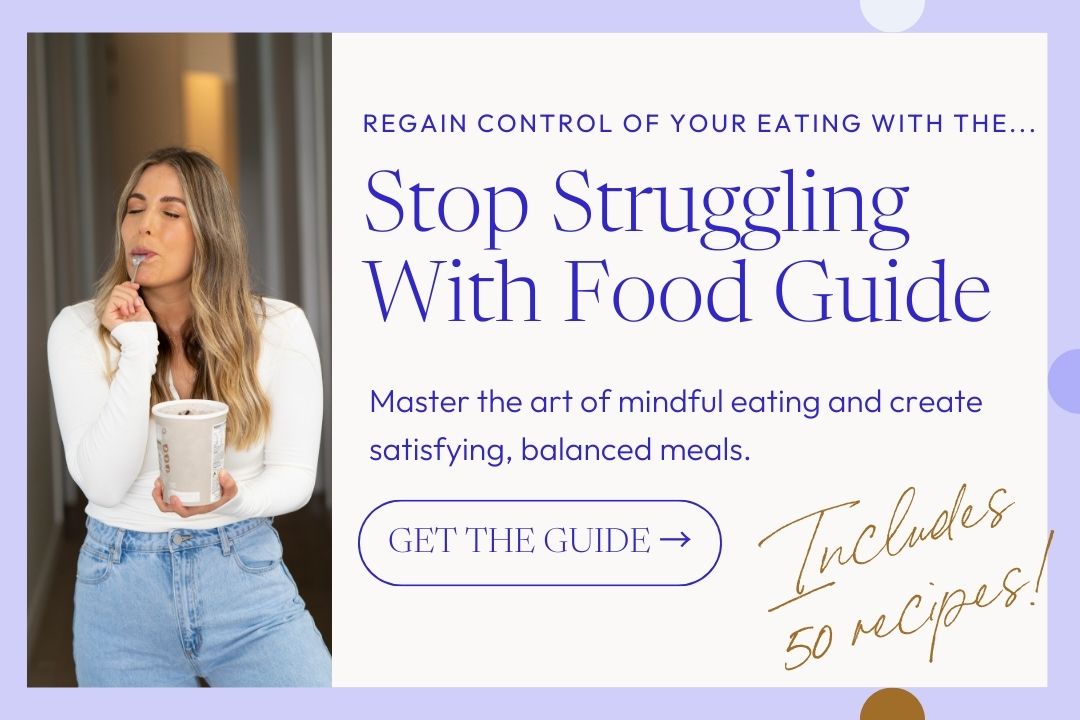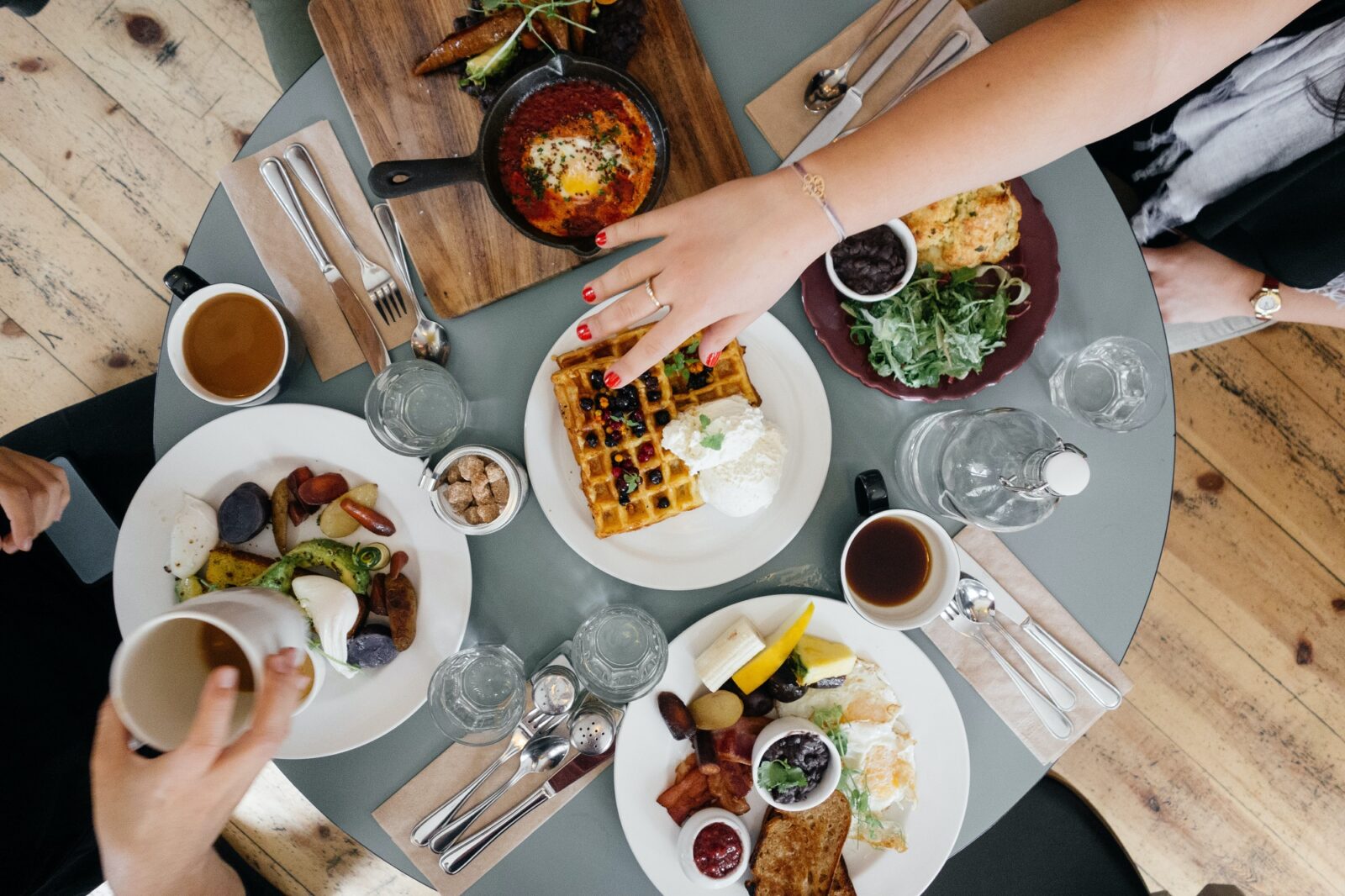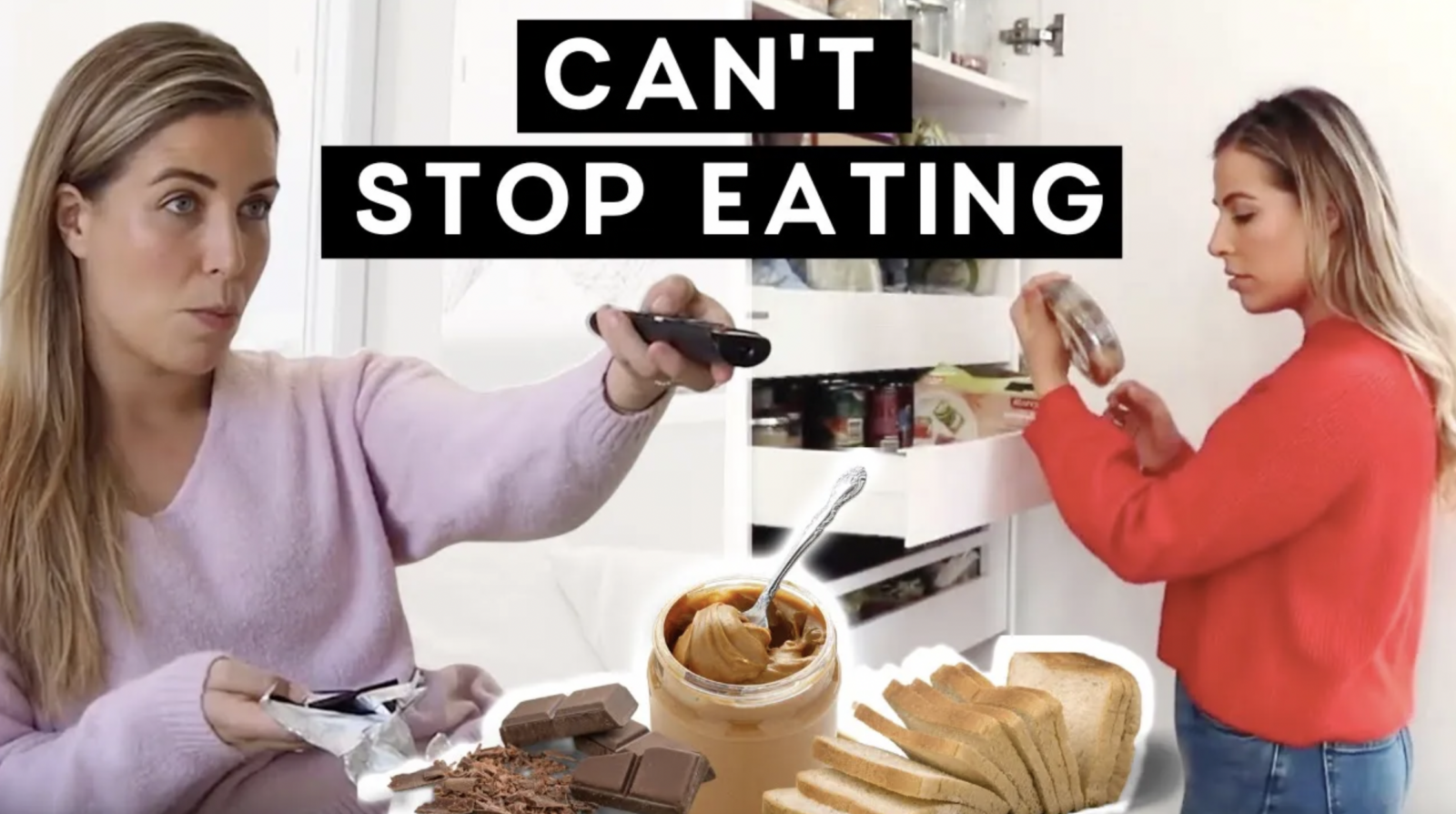Let’s chat about emotional eating and dive into what your brain is trying to tell you when you have the urge to eat, even if you aren’t actually hungry.
It’s not uncommon to turn to food to deal with the discomfort of unpleasant feelings. Whether that’s stress, sadness, loneliness or boredom. But food isn’t actually an effective strategy to deal with this emotion. In fact, it can make us feel worse in the long term. Because as soon as we stop eating, those unpleasant feelings come back. And we’re left feeling stressed and upset again, with a side of guilt and frustration.
So how do we overcome emotional eating? According to psychologist, Glenn Mackintosh, the magic cure has nothing to do with food.
Your body is trying to protect you
Emotional eating and binge eating is a protective response. Think of it as your body’s way of trying to look after you. It’s a normal reaction to have from physical or emotional restrictions or intense life events.
Once you unpack these emotional urges and resolve the unpleasant emotions, you get better at meeting your wants and needs. And get better at making the important changes in your life.
So rather than seeing it as this awful thing, it helps to view these urges as signposts. When you get good at paying attention to the signposts, you start to create a better life.
Listen to the clues
What if you start to interpret the desire to emotionally eat as your body’s way of saying something is wrong, instead of always blaming your lack of willpower?
For instance, you might have a strong desire to eat because you’re feeling lonely. You probably don’t need food. What you need is to find a way to connect with other people, in a meaningful way.
Or you’re feeling bored and want to eat. This could be a clue to find something inspiring. Do something that’s going to occupy your mind. Perhaps a new hobby?
These clues call on us to pause, reflect and question: What needs, desires or unmet emotions are fuelling this craving? And by reframing our perspective, we can begin to see binge and emotional eating not as enemies, but as allies.

Cure for emotional eating
Sometimes, we think the solution to emotional eating is to practice meditation or go on a walk, rather than seek connection with others. And don’t get me wrong, doing these things is beneficial. But for most people, these practices are just the beginning of overcoming emotional eating.
More often than not, the most effective remedy for emotional eating is leading a fulfilling life. Because once you build a life filled with hobbies, fun trips and meaningful connections with others, emotional eating starts to become a distant memory. You’re no longer trying to fill a void with food.
Ditch the diet rules
Trying to keep track of what you “should” or “shouldn’t” eat is a bit like trying to walk a tightrope in a hurricane. Practically impossible and not the kind of circus act we’re here for. So, instead of narrowing your world, why not expand it?
Peel away the layers of diet culture and restrictive food rules. This helps you to step into the freedom of enjoying food without guilt, and get to a place where food doesn’t control you. Then, you can finally celebrate the sheer brilliance of being an imperfectly perfect human.
Emotional hygiene
Keeping our emotions in balance is like taking care of our teeth. We do it regularly to avoid problems, not just when something goes wrong. This means doing things like getting enough sleep, staying active and finding ways to relax and handle stress.
When we look after our emotional health, it’s easier to make decisions that match what’s important to us. But, if we ignore these healthy habits and let our negative emotions build up, making good choices gets harder.

Ever find yourself caught in a tug-of-war between logic and impulse when making a decision?
On one side, the logical part of your brain might be saying “go for a walk or call your friend to deal with this”. On the other, the impulsive side is yelling ” screw it, just eat the chocolate to feel better”. Don’t worry, you’re not crazy. This is a natural aspect of the decision-making process.
It’s important to understand and manage our feelings without using food to make ourselves feel better. It’s okay to have all kinds of emotions. Especially when we’re stressed or upset. By letting ourselves really feel and deal with them directly, we can get through tough times without turning to food for comfort.
In short, taking care of our emotional health helps us live better. It makes it easier to deal with stress and tough feelings in a healthy way, instead of always turning to food.

Quick Links:
Want to be healthy but can’t handle going on another pesky diet? My Back to Basics App has everything you need. Try it FREE for 7-days.
Learn how to become a mindful eater and get 50 recipes that will help re-ignite the romance of healthy cooking with my Stop Struggling With Food Guide
Need more support with binge or emotional eating? Check out my online program Binge Free Academy. It’s already helped thousands of people create a healthier relationship with food.